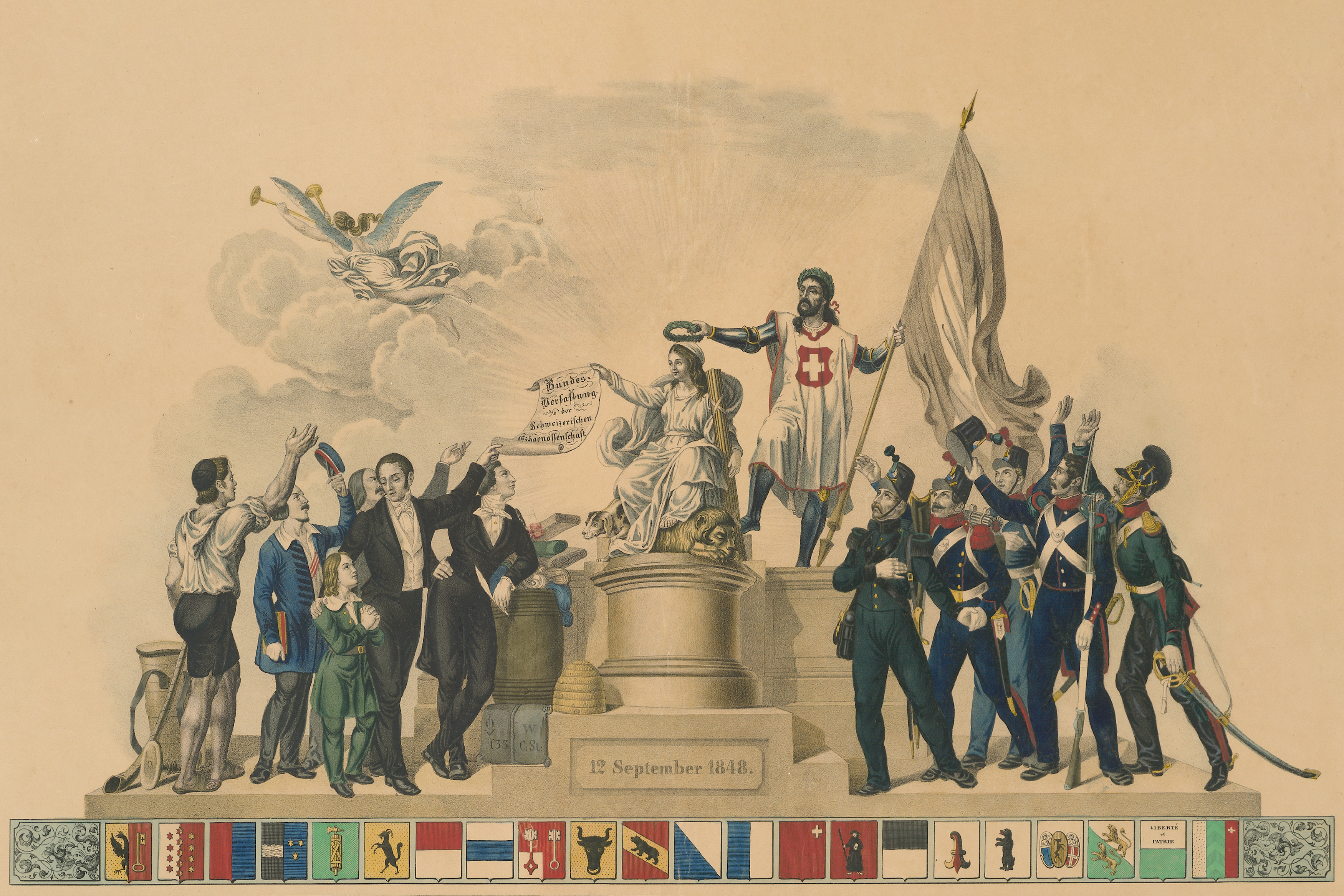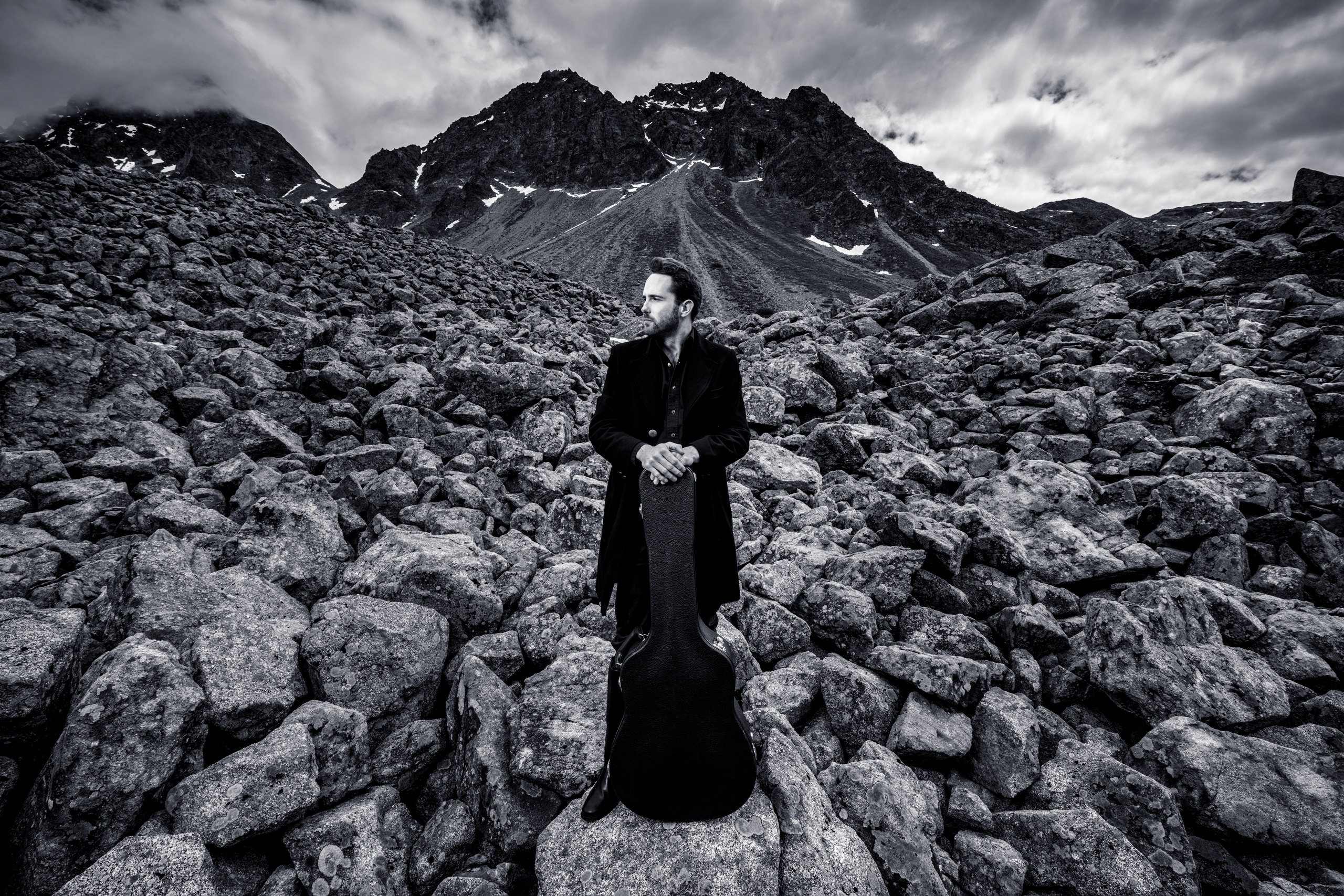
‘Security here, freedom there’ – insights from a US trucker festival in Switzerland
The allure of the United States is palpable at Europe’s largest trucker and country festival, held in Interlaken, central Switzerland. But even as visitors revel in the romance of Route 66 and the Wild West, they remain clear-eyed about the country without health insurance and pension schemes.
The Trucker & Country Festival in Interlaken is the largest such gathering in Europe with more than 45,000 attending last month.
It doesn’t feel like Europe: the festival grounds are filled with monster trucks, cowboy hats and a mechanical rodeo bull in an airplane hangar; people are devouring corn dogs and the dancing Wild West Girls and Boys resemble characters straight out of the Lucky Luke comics. But the presenter speaks German with an Austrian accent and explains to the crowd how European emigrants brought their traditional dances to the US.
The Wild West Girls and Boys are not shy to dance to the children’s tune “Old MacDonald had a Farm”. The festival sometimes seems like an American carnival in Switzerland. “This is the real Wild West,” a woman tells her companion.
However, only a few days ahead of the event cultural scientist Johannes Binotto had a more sobering perspective: “John Wayne fans may not like to hear this, but the Wild West is only a yearned-for fantasy.”
The western genre is a clear example of people’s fantasies about America, prevalent not only in Europe but also in the US, he says. “The first Wild West stories emerged only after the West, which was no longer colonised by white settlers, had ceased to exist.”
Binotto told us to pose a specific question to the attendees at the festival: “What do people talk about when they talk about America?”
At the Interlaken event, the focus largely centres on the geographical aspects of the US. Many trucker enthusiasts recall their experiences in rural areas. They talk about their work on Florida’s orange farms or driving through the expansive Midwest, which represents for them a true sense of freedom, whether they were cruising in a pickup truck or in a full-sized rig.

More
Do politics from home resonate with Swiss abroad?
Visitors express their fascination with the southern states which they describe as “controversial but very interesting”. They discuss places such as North Dakota or Illinois, but Chicago is not mentioned. “I have been in rural areas where the food comes from,” they remark. Very few have ventured to New York City.
More Wild West fascination than political discussions
It’s the day after the US presidential debate between Joe Biden and Donald Trump, yet politics is not on the minds of the festival attendees. During our interviews, only one man delves into politics. He points to his flag of the Confederate Southern States of America and expresses his appreciation that this region kept up slavery for such a long time. When we ask him whether he was drunk, he said he was not.
People bob along to the music that blares from the loudspeakers on all stages, big and small. Professional and amateurs alike participate in line dancing, not just on the official stages but in every corner of the festival grounds. Those who don’t yet have a cowboy hat have a chance to purchase one in the Western Village.
The wild, male-dominated life of the Wild West is taken with a pinch of salt and sometimes with a rather rude sense of humour. A metal sign depicting Clint Eastwood reads: “So many assholes, so few bullets.”

More
Sister republics: what the US and Switzerland have in common
Children are better off looking at the truck adorned with spray-painted images of Terence Hill and Bud Spencer, two Italian actors who made action-comedy spaghetti Westerns, which offers a more child-friendly and entertaining sight.
‘Do what you want in the US and Switzerland’
Sporting his own cowboy hat, cultural scientist Binotto would fit right in. He says he was “absolutely fascinated” with the US and its tales.
Binotto recalls purchasing his first cowboy hat during George W. Bush’s presidency and expresses a desire to not “cede great hats to reactionary individuals”. He emphasises that the mythology of the Wild West was not tied to a political camp but was instead dazzlingly ambiguous.
Binotto is not surprised that Europe’s largest trucker and country festival takes place in Switzerland. He sees similarities in the Republican self-image of both countries. “The ideal that everyone can do what they want in their own garden is prevalent in both the US and Switzerland.”
Neither government nor the authorities should be allowed to interfere in people’s lives.

The myth of the frontier in the Swiss Alps
Binotto can also sense that people in the Swiss Alps long for the freedom of vast open spaces. “Just look where people settled over there. It seems that they chose their places just to avoid being with other people,” he observes. “Swiss mountain villages also have a frontier feel to them.” The myth of the frontier describes the romanticised depiction of European emigrants who ventured westward in the 19th century.
Those who settled as early and as far west as possible – right on the edge of the perceived wilderness – were celebrated as heroes in popular culture.

More
‘Swiss Johnny Cash’ Florian Fox walks the line between Zurich and Nashville
However, America aficionados at the festival see few parallels between the mentality of the US and Switzerland aside from perhaps conviviality and a sense of homeliness. “I was moved by the country, but I see only a few similarities with Switzerland,” says Matthias Steffen from Emmental.
In the US, it is acceptable to fail, he says. Entrepreneurs can fall and rise again. There is more vitality and zest for life. “In Switzerland, if you shoot at a tree on a Sunday, the police will come to your house,” says Steffen, who describes himself as constantly striving to “blend the best of Switzerland and the US”. However, he admits to living the life of a “Bünzli” – a typical Swiss who adheres to rules, tends towards conservatism and has no plans to emigrate. “Over there, nobody would watch out for me.”
“Bünzli” – a derogatory term for socially compliant Swiss – is mentioned a few times during our visit to the festival. Switzerland is often seen as the land of nitpickers, contrasting with the perceived land of unlimited freedoms. “In Switzerland you get security; in the US you get freedom,” says Rico Meyer, who spent part of his childhood in the US. In Switzerland, he says, driving an SUV quickly labels you as an “environmental destroyer”.
Nevertheless, Meyer values the security of his homeland. “There are too many things that are better in Switzerland, such as our health insurance and pension scheme.”
‘Freedom portrayed in movies’
Beat Ruchti has experienced the “freedom that is portrayed in movies” in the Midwest, but emigration is far from his mind.
He says he travels “across” once a year and engages in political discussions about the Swiss social state, health insurance and pension scheme. “There are vast differences in politics between here and there. In Switzerland, we live in a secure country,” says Ruchti. He is not prepared to give up this security.

Many visitors to the Interlaken festival love the US and the American way of life. At the same time, everyone we spoke to is aware of the difference between fascination and enthusiasm and the realities of life.
“God bless our nation” reads the number plate of Bernd Zay’s SUV. Zay, a truck driver for 31 years, has a deep affection for the US. “He would love to emigrate,” says his wife, Tatjana, though he shrugs off the idea with a smile. It simply never happened, he says. His fascination with the US grew alongside his passion for cars during his teenage years.
The fascination is mutual. “The rituals and lifestyles are completely different in Switzerland,” says Zay. “But just as much as the Swiss are enthralled by the US, I know some people in the States who are equally fascinated by Switzerland.”
The long-time truck driver observes something similar to what Binotto discovered. “America has cultivated a phantasm of countries like Switzerland.” Conversely, Switzerland has also created a phantasm of the US. “These fantasies influence each other,” says Binotto. “They have a real impact on social debates.“
Edited by David Eugster. Adapted from German by Billi Bierling/ts




























You can find an overview of ongoing debates with our journalists here . Please join us!
If you want to start a conversation about a topic raised in this article or want to report factual errors, email us at english@swissinfo.ch.